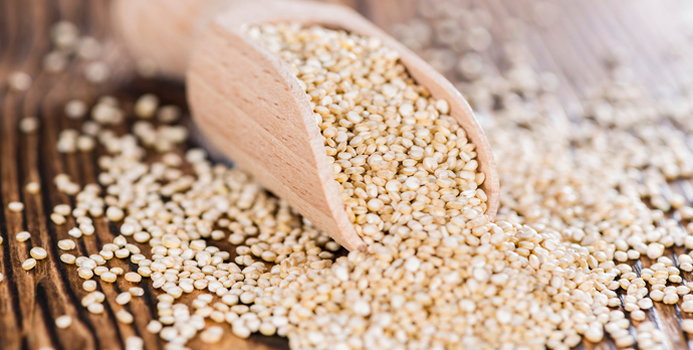If you follow a vegan diet, or simply prefer plant protein to avoid potential hormones or antibiotics sometimes found in meat, eggs, and dairy foods, getting protein from plant foods is a must. The best sources of plant protein are those that contain significant amounts to meet your daily needs -- especially proteins that contain all of the essential amino acids.
Soy Protein
Soy is a complete source of protein because it contains all essential amino acids your body needs regularly to function properly. Soy protein powder is readily available, but you can also get soy protein from soy milk, tofu, tempeh, soy nuts, and soy yogurt. Just 1/4 cup of soy protein powder contains about 17 grams of protein. Three ounces of tofu provide you with about 15 grams, and 1 cup of soy milk contains about 8 grams of dietary protein.
Hemp Seeds
Hemp protein also contains all essential amino acids, according to a 2010 review published in Nutrition and Metabolism. Three tablespoons of hemp seeds contain just under 10 grams of protein, and 1/4 cup of hemp protein powder provides about 14 grams of high-quality dietary protein you can add to shakes, smoothies, hot cereals, and pancakes.
Quinoa
Quinoa is another plant source of complete protein, according to a 2015 review published in the Journal of Traditional and Complementary Medicine -- and is rich in fiber and a variety of vitamins and minerals. One cup of cooked quinoa provides about 8 grams of high-quality protein. Try eating cooked quinoa with beans and vegetables for dinner, as a hot cereal or added to pancakes for breakfast, as a topping with fruit and nuts on a yogurt parfait, mixed in soups, salads or veggie burgers, or blended into protein smoothies.
Seitan
While seitan (made from wheat gluten) isn’t a complete protein, it’s a rich source of protein that can easily be combined with legumes, nuts, or seeds to form a complete protein. Just 1/3 cup of seitan provides about 21 grams of protein. Try seasoning seitan like you would with beef, chicken or fish to create a meat-free protein you can use for a main course, as a salad topping, mixed in soups, used in stir frys, or mixed in meatless spaghetti sauces and vegetarian casseroles.
Peas and Other Legumes
Including peas and other legumes -- like lentils, chick peas, black beans, and navy beans -- in your daily menus significantly boosts your protein, fiber, and vitamin and mineral intake. Try mixing pea protein powder, containing about 21 grams of protein in each 1/4 –cup serving, with smoothies, yogurt, or cooked cereals. Many legumes contain about 15 to 20 grams of protein per cup (cooked). Combine legumes with whole grains or nuts and seeds for form a complete protein.



